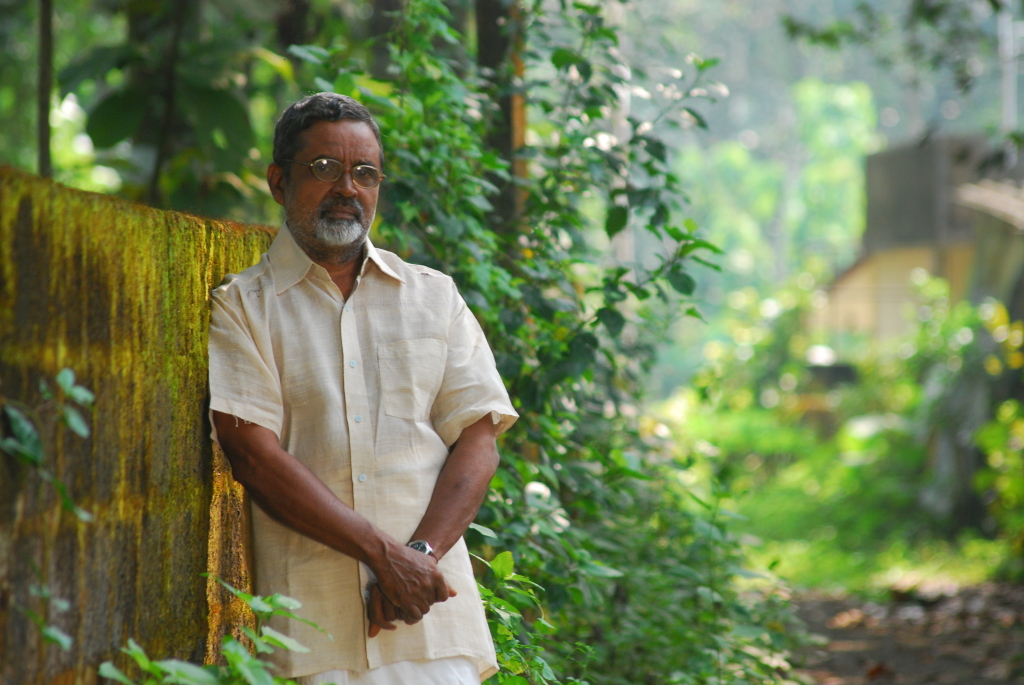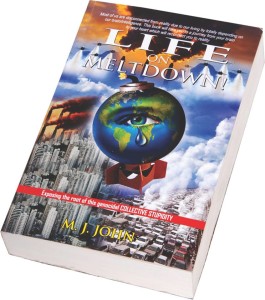M J John
A self-taught naturalist, I am always on the journey of explorations. As a thinker and writer by compulsion, I am on a quest for truth.
My profile or qualification to write what I am writing in my books is closely linked to my looking at the present human society through the perspective of Natural Life and my Primal Consciousness. Here I am only justifying whatever the Nature-merged profile that I have earned in life, and which, I consider, is more relevant so far as we remain the children of Mother Nature. My aim is to focus closely on the big questions: “What it means to be human”, “Where are we?”, “Where do we come from?”, “How did we forget our relations with nature?” and “Where should we be going?”
Through my books, I have been making an attempt to rethink our collective story, and mine has been a new analysis of current and previous societies to move forward by reflecting on our collective history. Actually my first book, Story Of Man: Layman, in 1990, was an attempt in this direction by emphasizing the relevance of common man – layman. It is showing the sheer irrelevance of the experts and professionals in the millions of long human story, and that the real story of man revolves round layman or the man of nature. Here I have equated laymen to free-thinkers. It also was an attempt in sharing from our common past just a few centuries back toward a shared future on our endangered planet. To sink into this perspective is to see with fresh insight how we truly belong here on planet Earth.
Here, my attempt is to expose our converging crises of violent conflicts, political corruption, and the globally widening ecological devastation. If we are to extract ourselves from the malaise we have created for ourselves and future generations of all species, we need to go back, take a look at how we got here and then move in a new direction.
It is also an attempt to create a sustainable, fulfilling future for which we need to first look back into our deepest past to recover our core humanity. In order to best move forward, modern humans must reflect upon their past. Here we must transform ourselves from being the market-machine-dependent, confused mechanical beings into freethinking individuals who are having the capacity to change the world.
In these books, I am looking on all issues within, beyond and even outside civilizations and cultures. Here the study includes visions from outside the academia and by defying conventional, agreed-upon categories of the knowledge industry. As an ardent observer of human story spanning millions of years, I am also trying to view human world and its present civilizations from a little far, as one from another generation, race or culture.
Incidentally, I consider myself as having lived and experienced two historical epochs – ancient and modern. I was born in a remote and tribal village in Kerala before India became independent, and had a somewhat pre-modern childhood. Later my brief initiation to modern education, a two year study for Catholic priesthood, a 10-year long job with Indian Postal Department, another 10-year service in Indian Army, followed by assuming the profession of a photographer for some years that helped me to cover the many social and political events of the time.
But the most awakening occasion, in later years, was a rare opportunity that exposed me to the wonderful experience of the pristine organic pre-modern life in the remote coral islands of Lakshadweep for a period of ten years and my attempt to familiarize and study the two worlds – the pre-modern society in the Lakshadweep islands and the post-modern society on the Indian mainland that existed side by side.
Those 10 years of my life in Lakshadweep, the tiny group of coral islands in the Arabian Sea, stretching out as part of the South-western Indian Territory, from 1991 to 2001, only reinforced my conclusions. Actually Lakshadweep was fast becoming a tourist destination when I first landed there in 1990. Long remaining as an off-shore jail for the prisoners banished by the past Indian Kings and rulers about 500 years ago, the outside world today is surprised to find Lakshadweep to be a virtual paradise on earth with no jail, no criminals, no beggars, no pollution, no mental or physical diseases and no other curses and crises that are common to the mainstream industrial society in the mainland. And the sole reason for these particular characteristics of this splendid culture was its total remoteness to the outside world – especially the industrial civilization – and thus its inaccessibility to the evils of mechanization. This gave me an instant comparative experience and view of the pre-modern world and the post-modern world existing side by side, by a tiny separation of a mere 440 KM (from the mainland).
Well, as my interest in comparing the two worlds – the pre-modern and the post-modern – that I used to experience simultaneously, by trotting over the two intermittently, and with the increasingly pouring of apocalyptic news and catastrophic developments in modern world today, one thing started to become clear in my mind: the development of modern education and expertise have progressively malformed and molded modern society into a mega bomb-like structure that is all set to go off at any time now.
In doing this study, I was indeed performing a hide and seek game with the modern life process: living inside it and sometimes trying to live outside it; looking at it compartmentally and then, sometimes, trying to have an integrated and wholesome vision by linking it as a very minute part of the millions of year long human evolution, and also trying to give it a continuity. Here, I see man in the collective. I have tried to not only scientifically know, but also to intuitively feel that we are creatures of this Earth. And as such, one cannot help but take an interest in biology, medicine, the life sciences, and the Earth itself.
It was the reading and self-education I did on health and diseases of both mind and body that got me into this venture and the robust self confidence that drives me. I focused only on success – success stories of people and other species that keep themselves out of disease and other unnecessary problems, people who lived the longest and healthiest, people who had travelled and observed life all over the world. I did not focus on the standard scientific or medical dogma, because that has all been a failure and there are more diseases, problems and misery in modern society than ever before in human history.
Everyone’s life consists in large part of the accumulation of lessons learned from many other people and from life. My case is no different. Availing an opportunity to walk through the villages of India with a leading Indian politician CHANDRA SHEKHAR – he later became the Indian Prime Minister in 1990 – in his 6-month long ‘Padyathra’ (travel on foot) from the South to the North of India on foot in 1983, I found myself with a drastically changed mindset. Later for the rest of my life, the best of my free time has gone into seeking honest answers to my inquiries and dilemmas. Nothing has been taboo. No doors were closed. My long years of membership in the American and former Soviet Union libraries in Delhi during the hottest period of the Cold War years have all helped me a lot in having a somewhat ‘hands-on’ experience with the live diverse world, with an unbiased and unprejudiced mindset. I could draw any conclusions; the evidence seemed to support and to call for.



